Our sleep habits have been based on the sun’s cycle for much of human history.
When we discovered fire, our circadian cycles were affected, and when we discovered electricity, they were eternally transformed.
We can now keep the lights turned on and a bright screen in front of our faces at all times.
The difficult aspect, according to sleep specialists, is relearning how to turn everything off.
The amount of time their children want to spend on their devices, whether it’s their phones, tablets, or computers, is a common gripe among modern parents.
Many parents are concerned about the long-term implications of excessive screen use, in addition to anxieties that their children may lose out on the world around them.
According to a new study, it’s not just the screens that are to blame, but the color of the blue illumination they admit.
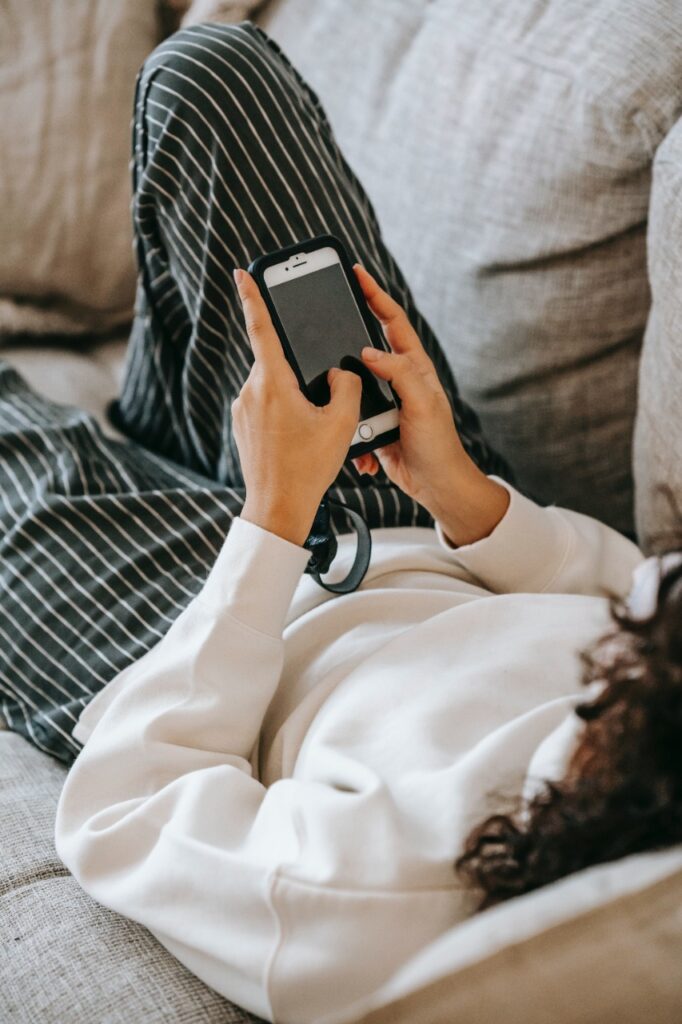
According to new research out of the Netherlands, cutting off screen-time two hours before bedtime — or at the very least wearing blue-blocking glasses — can make a major difference in a young adult’s sleep patterns.
According to the National Sleep Foundation’s 2014 Sleep in the Modern Family1 poll, three out of every four teenagers, including 96 per cent of teenagers aged 15 to 17, bring technology into the bedroom. The average adolescent spends up to nine hours2 every day in front of a screen.
There are numerous advantages to using electronic gadgets for study, leisure, and social media. Experts, on the other hand, are growing increasingly concerned about the impact of blue light from these electronic devices on the sleep-wake cycle. Two out of every three teenagers sleep less than the necessary amount of time, and screen usage may be to blame for sleep deprivation and other issues.
Now let’s talk about What Effects Do Screens Have on the Sleep-Wake Cycle?
The human sleep-wake cycle is governed by a circadian rhythm that is mostly influenced by sunshine. We become more aware when it is bright outside. When it gets dark, the body creates melatonin, a hormone that makes you sleepy.
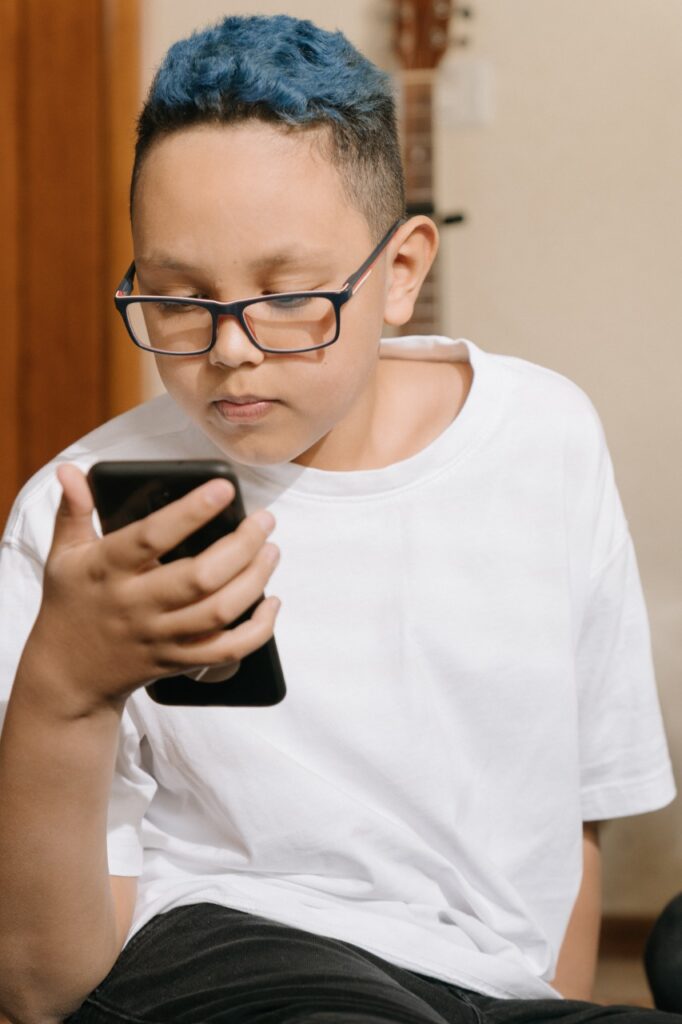
Short-wavelength blue light is emitted by smartphones, tablets, laptops, television screens, and some e-readers, and it is quite similar to sunlight. This light not only makes us more awake, but it also tricks our bodies into thinking it’s still daytime.
The body produces less melatonin as a result, disrupting the body’s natural sleep-wake cycle. The more time you spend in front of a screen, the worse the consequences for your sleep will be.
Is Teenage Insomnia Caused by Screen Time?
Teenagers’ screen time has been connected to a variety of sleeplessness symptoms. Screen time pushes out bedtime by delaying the release of melatonin, resulting in less restful sleep. Because most teenagers have stringent school start times, a later bedtime usually means less sleep overall and more drowsiness the next day. Consistently late workday bedtimes and weekend catch-up sleep disturb the circadian rhythm over time.
Scientists believe that because their eyes let in more light, children and teenagers may be more vulnerable to the effects of blue light. As a result, limiting nighttime screen usage in children and teenagers is critical for preventing sleep issues.

Teens’ screen usage may directly cut into their sleep time, in addition to decreasing melatonin levels. Before bedtime, watching intriguing or violent content or using social media might increase alertness and prevent sleep. Passive technology, such as a television in the background or a smartphone that emits sounds, vibrations, and light, can potentially alter alertness and melatonin levels.
There is significant controversy over whether screen usage causes insomnia in teenagers or whether kids who have difficulties sleeping are just more prone to use devices at night. To make matters even more confusing, heavy cellphone use has been connected to sadness and anxiety, both of which are risk factors for insomnia. It’s possible that sleep deprivation, screen time, and unpleasant emotions all work together to promote unhealthy habits.
However, the general consensus is that screen time causes sleeplessness more than vice versa. According to studies, 57 per cent of teens who use technology in the bedroom have sleep issues, and teens routinely report poor sleep when they have a television or tiny screen in the bedroom, such as a smartphone.
Changing the sleeping habits of teenagers
Researchers recruited 55 Dutch children aged 12 to 17 with varying levels of daily screen time consumption to assess the impact of blue-light producing screens on young people.
They were split into three different groups. Some were investigated while using their screens normally, while others donned glasses that blocked the blue light from their screens, and others avoided using bright screens entirely.
Their sleep quality was assessed over a five-week period using diaries, equipment that tracks when a person is sleeping soundly, and blood samples for melatonin, a sleep hormone.

According to the researchers, using blue light-blocking spectacles and limiting computer use a few hours before bedtime resulted in better overall sleep.
The more time an adolescent spends each day in front of a screen, the more likely they are to suffer sleep problems. Also, using a phone to contact others near night may cause kids to stay up later waiting for a response, resulting in less sleep. Finally, keeping a phone on and unmuted overnight has been shown to disrupt sleep in teenagers when incoming message alerts wake them up.
What Are Sleep Deprivation’s Consequences for Teens?
Adolescent sleep deprivation can affect mood, emotion, and academic performance. Teens who don’t get enough sleep are more likely to have conflicts with their friends, and chronic sleep deprivation can lead to a weakened immune system, depression, and suicidal ideation.
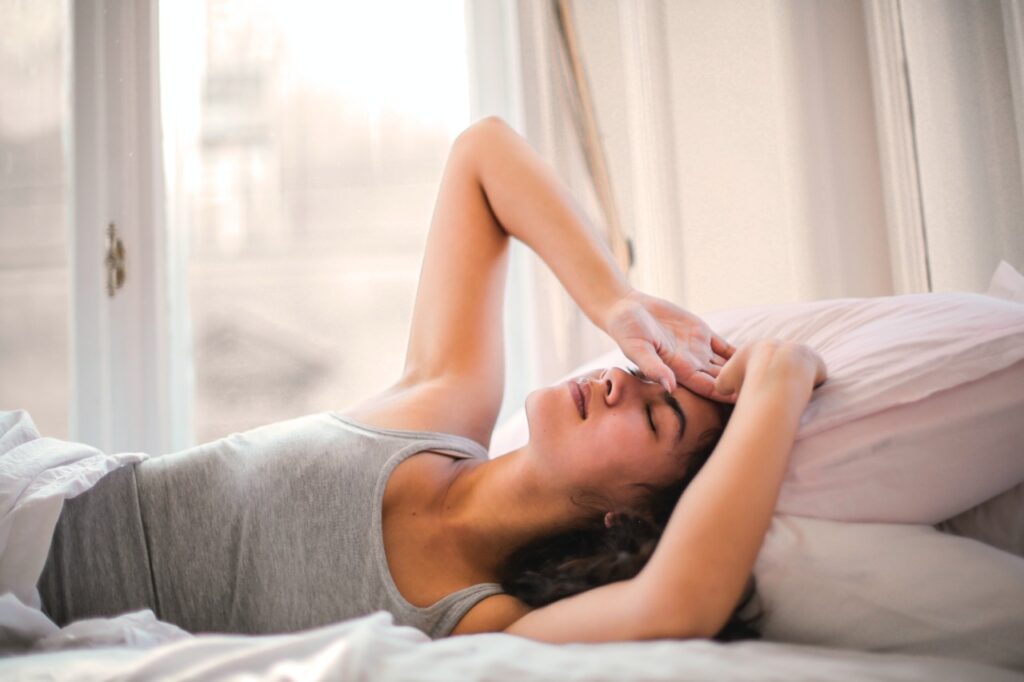
Sleep deprivation and screen time are both risk factors for obesity14, especially when screen time is substituted for exercise. Sleep deprivation also causes greater fatigue during the day, which is extremely risky for young drivers.
Screen Time and Sleep for Adolescents
Because teenagers need to utilize screens for scholastic and social purposes, groups like the American Academy of Pediatrics15 prefer not to establish a specific number on how much screen time they should have. Instead, they advise parents to create a customized media plan for their household.
A family social media strategy should contain clear screen time limits as well as time for other things like sleep, family time, schoolwork, and exercise. Teens thrive when they are given the opportunity to participate in the creation of their own rules, so sit down with your teen and make a “screen time plan” together.
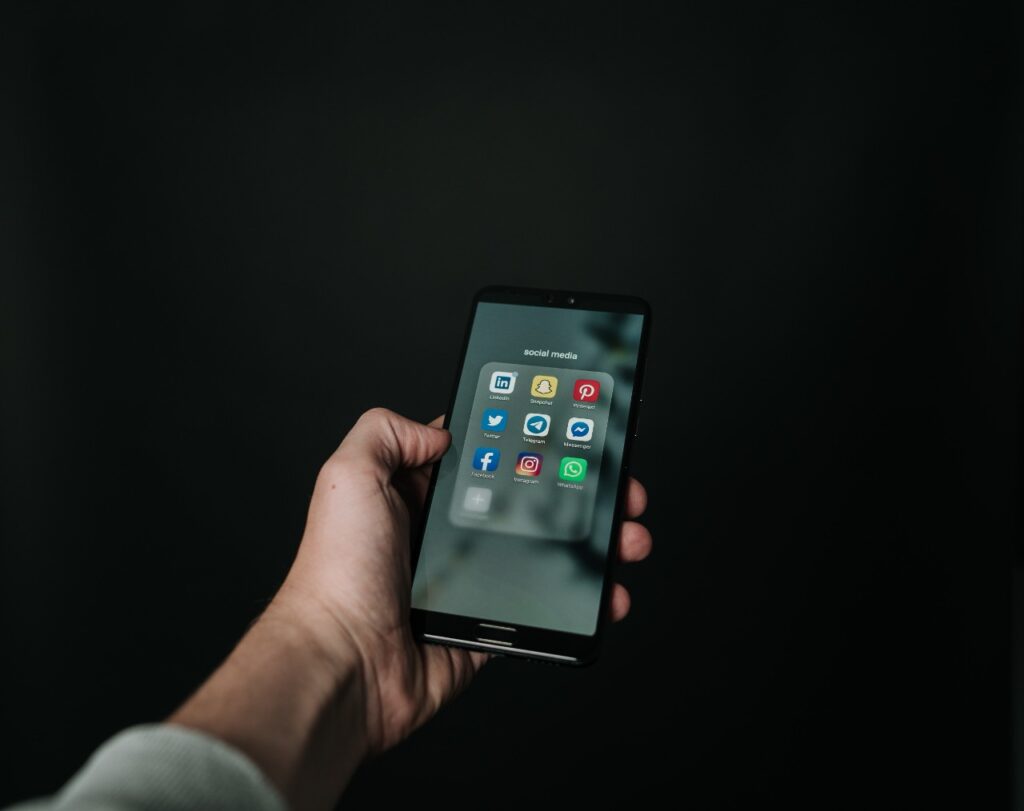
As part of your ongoing efforts to enhance your teen’s screen usage and sleeping environment, you should:
- Set limits for both instructional and recreational screen time.
- Choose a bedtime that is appropriate for your child’s age, keeping in mind that teens require eight to ten hours of sleep.
- Agree on a “screen curfew,” and encourage your teen to limit screen use early in the day.
- Choose a location for charging smartphones that is not in the teen’s room.
- Discuss the negative effects of sleep deprivation with your teen, and remind them that less screen time means more time for socializing, family time, homework, sports, and other extracurricular activities.
- Create a relaxing nighttime routine that includes activities like reading or conversing to replace screen usage.
- Maintain good sleep hygiene by keeping the room cold, dark, and quiet.
- In the days leading up to bedtime, turn off screens, select night settings, and turn on warm lights.
- Listen to your teen’s concerns, such as the dread of losing out on social media updates, and devise ways to address them in the media strategy.
- Be aware of your teen’s technological habits and discuss how to use the Internet securely and responsibly with them.
The bedroom should ideally be a screen-free zone. The brain relaxes when the bedroom is set apart for sleep. However, keeping gadgets out of the bedroom isn’t always possible. If your teen has to use electronics in the bedroom, have them turn it off an hour before night. Blue-light-filtering glasses or apps appear to reduce sleep interruptions in teenagers.
Effects on long-term health
It’s especially crucial, according to experts, because not getting enough sleep isn’t just about being weary and having difficulties concentrating.
In the long run, it can lead to problems like obesity, diabetes, and heart disease, which are all preventable.
With the current study, We want to see if cutting down on screen time and getting more sleep has long-term benefits. And whether the findings apply to adults.
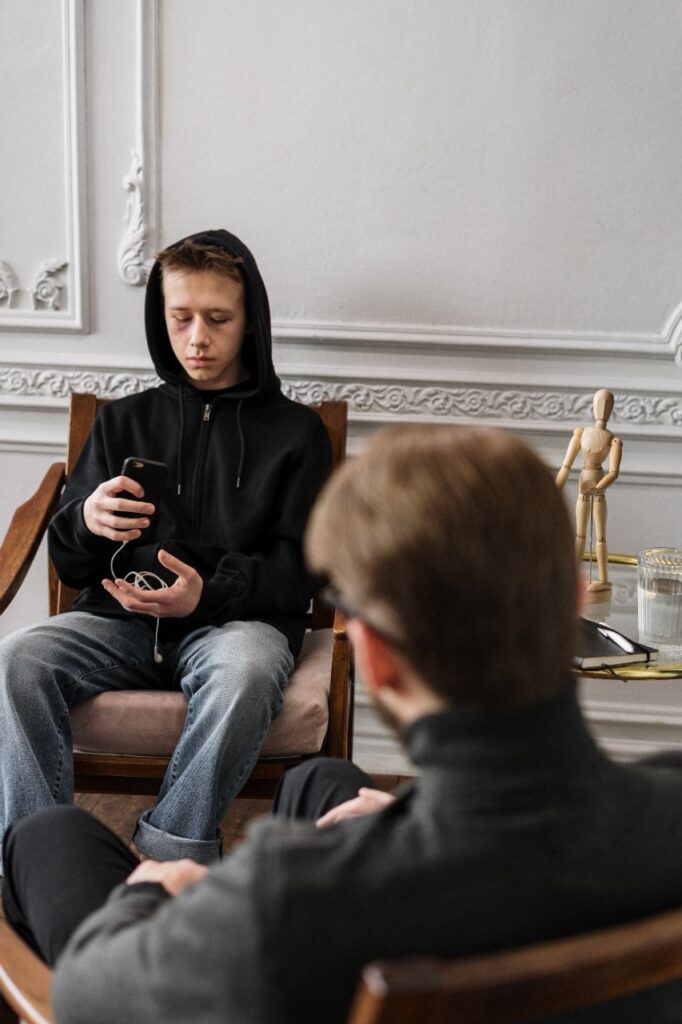
The following amounts of sleep are recommended by the CDC Trusted Source for every 24-hour period:
Age Hours of sleep
4–12 months 12–16, including naps
1–2 years 11–14, including naps
3–5 years 10–13, including naps
6–12 years 9–12
13–18 years 8–10
18–60 years 7 or more
Sleep impacts the levels of two hormones that control hunger and fullness, leptin and ghrelin.
Leptin signals to your brain that you’ve gotten your fill of food.
Ghrelin is known as the hunger hormone.
The endocrine system is a system that regulates hormones.
Hormone production is influenced by how well you sleep. You need at least 3 hours of unbroken sleep to produce testosterone. Waking up several times during the night may have an impact on hormone production.
This disruption can also impact the production of growth hormones, particularly in children and teenagers. In addition to other growth tasks, these hormones help the body create muscular mass and repair cells and tissues.
Growth hormone is released by the pituitary gland throughout the day, but it is also aided by appropriate sleep and activity.
Sleep-inducing effects can be found in a variety of meals and beverages. They may, for example, have high levels of nutrients like tryptophan.
However, there is little information on their precise effects on sleep in some circumstances.
Dairy products, such as milk, cottage cheese, and plain yogurt, are known to be good sources of tryptophan. Milk has been demonstrated to help older persons sleep better, particularly when combined with modest activity.
Bananas: The peels of bananas contain tryptophan, and the fruit itself contains a little amount of magnesium. Both of these characteristics could aid in getting a good night’s sleep.
If we can take basic steps today to address this issue, we can avert more serious health issues in the future.
Parents should attempt to be positive role models by restricting their own screen use to assist teenagers to develop healthy screen habits.

Dear Readers,
Vogue Wellness just kicked off as a health and wellness blog, striving to provide up-to-date and unbiased information and advice on Healthcare around the world that are of interest to its readers, and have wider political and economic implications. Your encouragement and constant feedback on how to improve our offerings will make our commitment to these efforts stronger. Even during these difficult times arising out of COVID-19, we continue to remain committed to you, keeping you informed and updated with Health and Wellness news around the world. We request you to stay at home and follow precautionary measures and government guidelines to save your life, and also those around you during these testing times.
We, however, have a request.
As we battle the economic impact of the pandemic, we need your support even more, so that we can continue to offer you more quality content. Our free subscription model has received an encouraging response from the readers, who have subscribed to our online blog. We expect more subscriptions to our online blog to achieve the set goals so that we can offer you better and more relevant content. We believe in fair and credible Content creation and publish wisely. Your full support can help us take forward this blog experience with a guarantee of unbiased views/original contents/up-to-date information to which we are committed.
Subscribe to Vogue Wellness-Where health thrives…If you like the content please do share.
Disclaimer: As a service to our readers, the Vogue Wellness portal provides access to our library of archived content. Please note the date of the last review or update on all articles. No content on this site, regardless of date, should ever be used as a substitute for direct medical advice from your doctor or other qualified clinicians.


